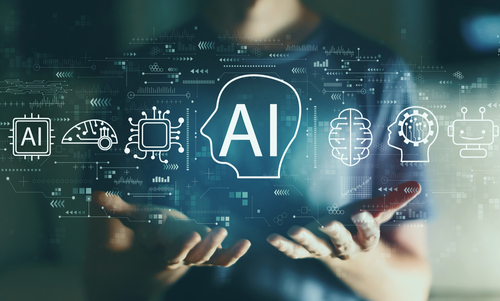The growing importance of artificial intelligence (AI) has the potential to fundamentally disrupt the labor market, but not necessarily or always in the way most casual observers might assume. While AI and other technologies always have the potential to displace human workers, in many (if not most) cases, the motivation is actually to complement human workers. These tools have tremendous potential capabilities, but in order to utilize them, organizations need humans who know how to leverage them most effectively. In this context, then, one major potential labor force disruption caused by AI is a growth in demand for workers who know how to use AI and similar tools.
AI Competencies Growing in Demand
Case in point: workplace collaboration platform company Dropbox, which recently announced plans to cut 500 staff, or 16 percent of its workforce, according to an article for BQ Prime by Sakshat Kohlhatkar.
Dropbox CEO and cofounder Drew Houston attributes the cuts, in part, to the growth of AI technologies. Such technologies have fundamentally changed the tech landscape in so many ways that a restructuring was simply necessary, the company argues.
Interestingly, however, Dropbox’s employment announcement could be seen as more of a workforce replacement than a pure reduction, because the company actually plans to hire a lot more new staff. In particular, Dropbox is looking for staff with skills in a key technology: AI.
“Despite the layoffs, Dropbox plans to hire new employees with AI skills,” Kohlhatkar explains. “The company believes that AI is the future and that investing in this area will enable it to remain competitive in the market. The AI skills that Dropbox is looking for include machine learning, natural language processing, and computer vision.”
Digital Transformation
Dropbox, like many organizations, has been working on “digital transformation,” included AI-related projects for some time. New directions in product development illustrate this trend, Kohlhatkar notes.
At Dropbox, he says, “this year’s product pipeline will demonstrate its commitment to this area.” Dropbox—like other companies—wants to ride the wave that the potential of AI is predicted to deliver.
AI Superpowers
“The company believes that AI will give it new superpowers and transform knowledge work, making it more efficient and effective,” Kohlhatkar writes. “However, this transformation requires investment, and the company is taking a proactive approach to cut costs and invest in new areas,” he says.
Dropbox’s experience is a great example of the complex way in which new technologies like artificial intelligence are changing the makeup of the modern workforce. While AI may certainly displace some workers, those who have knowledge and experience that can be used to leverage AI tools most effectively may actually find their human skills in greater demand than ever before.
Lin Grensing-Pophal is a Contributing Editor at HR Daily Advisor.

